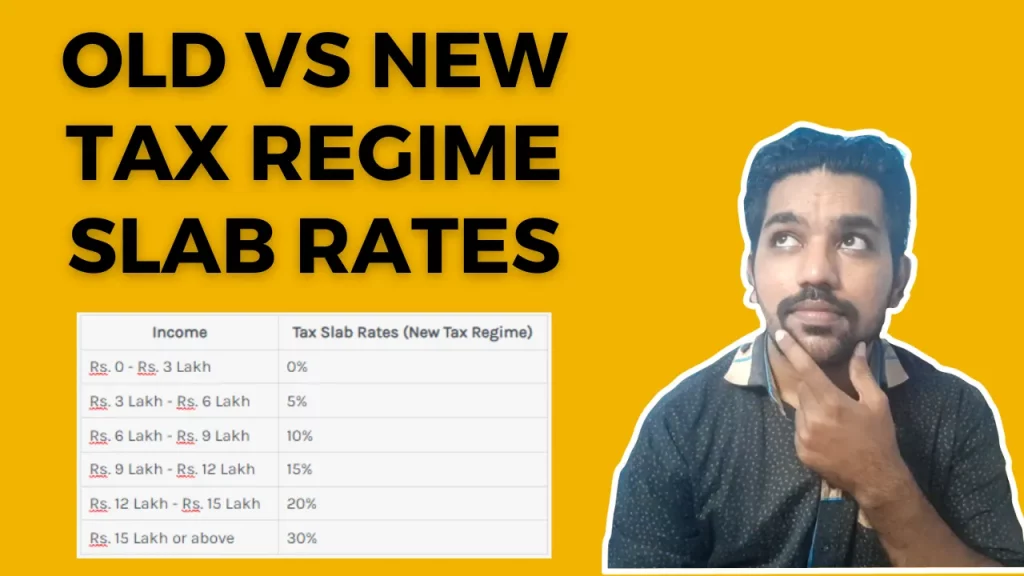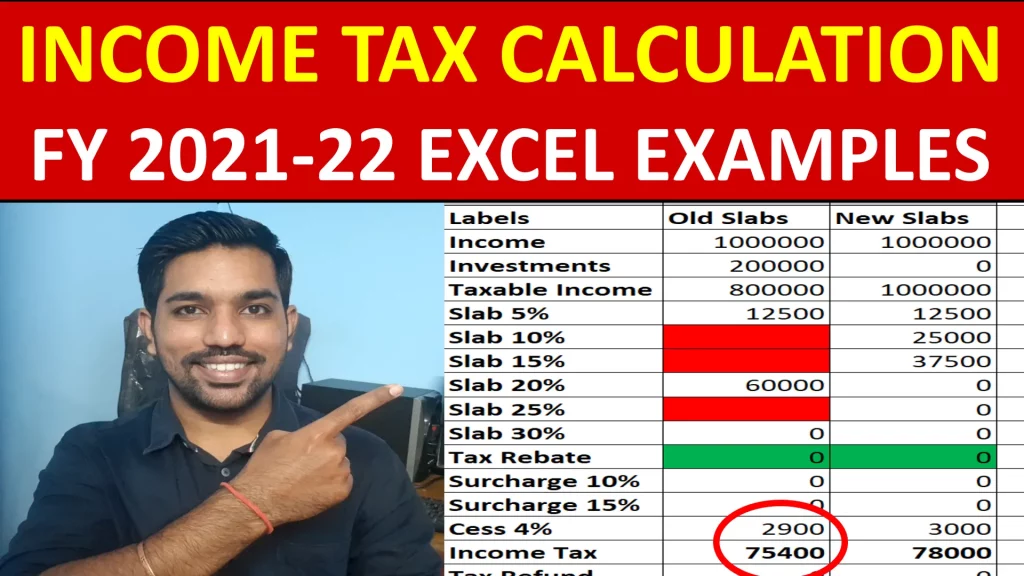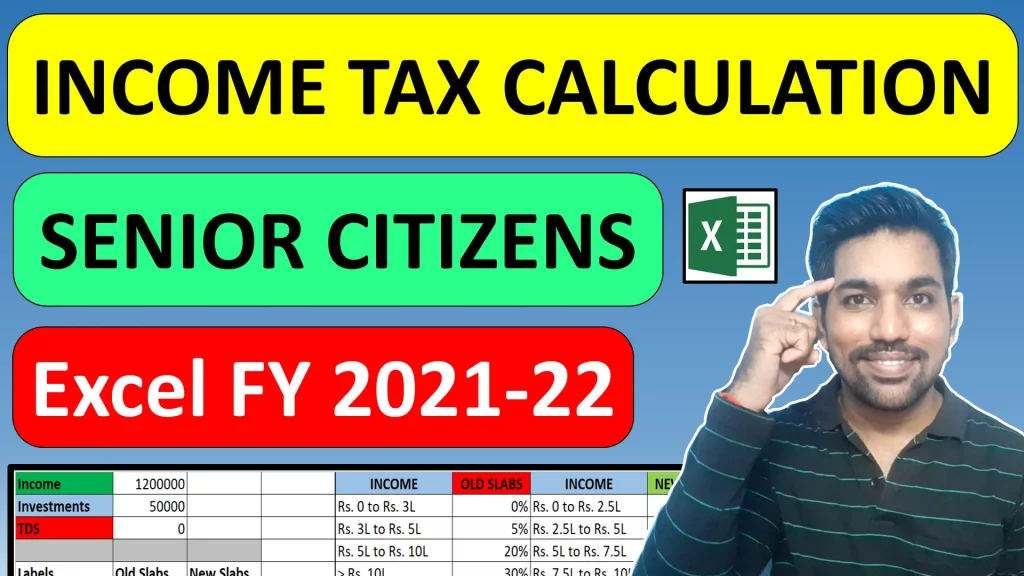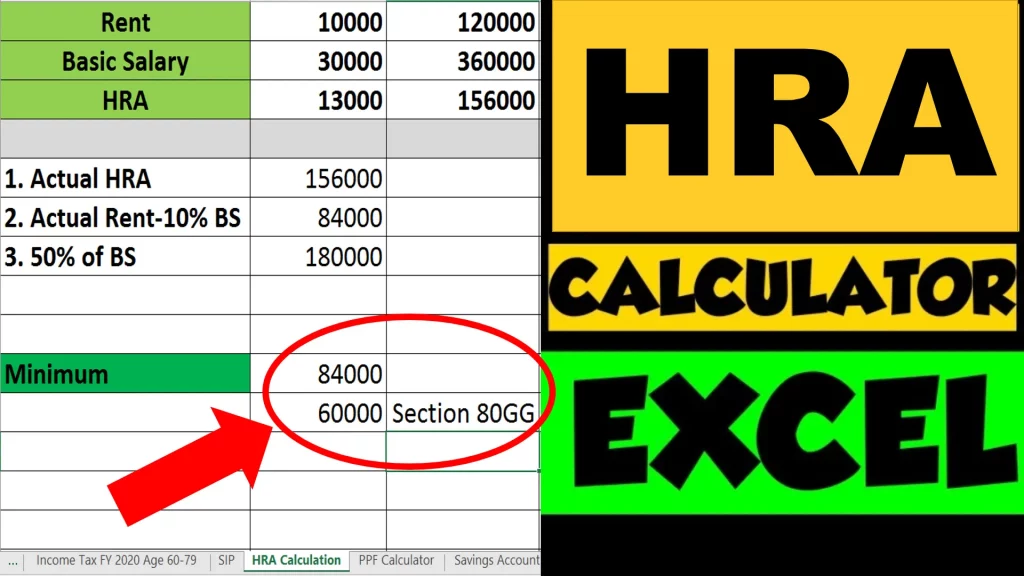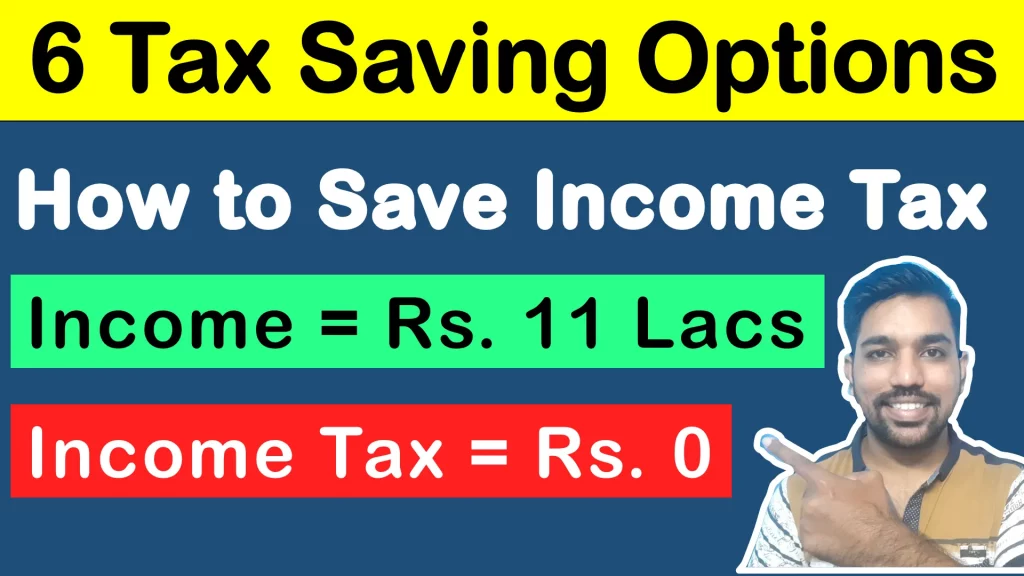In Budget 2023, there were few important changes made including the new tax regime slab rates changes. We will see Old vs New Tax Regime Slab Rates in this article and which one will be better for you in FY 2023-24.
New Tax Regime Slab Rates for FY 2023-24 are as follows for all age groups:
- Rs. 0 to Rs. 3 Lakh Income = 0% Tax
- Rs. 3 Lakh to Rs. 6 Lakh Income = 5% Tax
- Rs. 6 Lakh to Rs. 9 Lakh Income = 10% Tax
- Rs. 9 Lakh to Rs. 12 Lakh Income = 15% Tax
- Rs. 12 Lakh to Rs. 15 Lakh Income = 20% Tax
- Rs. 15 Lakh and above Income = 30% Tax
Other important changes in Budget 2023 includes:
- Tax Rebate limit increased from Rs. 5 Lakh to Rs. 7 Lakh in New Tax Regime. So no tax up to income of Rs. 7 Lakh with new regime
- Tax slab rates changed for new tax regime
- Standard deduction of Rs. 50,000 available with new regime from FY 2023-24 onwards
- What are the Old vs New Tax Regime Slab Rates in India FOR 2023-24?
- New Tax Regime Deductions and Benefits
- Income Tax Calculation Examples 2023-24 Video
- What is the tax for 5 lakh salary in India?
- How to save tax on 8 lakhs salary?
- How can I avoid a higher tax bracket?
- How is tax calculated on salary?
- Is 6 lakhs income tax free?
- How much income is tax free?
- Conclusion
Let us understand Old vs New Tax Regime Slab Rates for FY 2023-24 in details for all age groups.
What are the Old vs New Tax Regime Slab Rates in India FOR 2023-24?
In FY 2023-24 (AY 2024-25), the income tax brackets in India is divided based on your age.
- For age up to 60 years, you are treated as non senior citizen of India
- Age 60 years and less than 80 years, you are treated as senior citizen of India
- Age 80 years and above, you are treated as super senior citizen of India
Based on above age groups, we have 2 tax slabs or tax brackets in India:
- Old Tax Regime (Different Slabs based on age groups)
- New Tax Regime (Same Slabs for all age groups)
So Old Tax Regime have different Slab rates based on age groups mentioned above. Old regime also helps you to save income tax using various deduction options for FY 2023-24.
Whereas, New Tax Regime was introduced in Budget 2020, which are reduced Tax Slab rates compared to Old Tax Regime. New Regime does not allow any tax saving options or deductions.
You have the option to choose between Old or New Tax Regime while calculating Income Tax.
Let us now see Old vs New Tax Regime Slab Rates in India for FY 2023-24 based on age groups.
Income Tax Slab Rates for age up to 60 Years
If your age is below 60 years in FY 2023-24, below are the Tax slab rates for you based on Old Tax Regime:
| Income | Tax Slab Rates (Old Tax Regime) |
|---|---|
| Rs. 0 – Rs. 2.5 Lakh | 0% |
| Rs. 2.5 Lakh – Rs. 5 Lakh | 5% |
| Rs. 5 Lakh – Rs. 10 Lakh | 20% |
| Rs. 10 Lakh or above | 30% |
Let us now see the reduced tax slab rates, that is New Tax Regime for age up to 60 years:
| Income | Tax Slab Rates (New Tax Regime) |
|---|---|
| Rs. 0 – Rs. 3 Lakh | 0% |
| Rs. 3 Lakh – Rs. 6 Lakh | 5% |
| Rs. 6 Lakh – Rs. 9 Lakh | 10% |
| Rs. 9 Lakh – Rs. 12 Lakh | 15% |
| Rs. 12 Lakh – Rs. 15 Lakh | 20% |
| Rs. 15 Lakh or above | 30% |
So New Tax regime has reduced tax slab rates compared to old tax regime. But you will not get any deduction options to save income tax in new tax regime.
We will see How Income Tax is calculated later in this post so continue reading.
Let us now see the Old vs New Tax Regime Slab Rates for Senior citizens – age 60 years and above but less than 80 years .
Tax Slabs for Senior Citizens
If your age is 60 years and less than 80 years in FY 2023-24, below are the Tax slab rates for you based on Old Tax Regime:
| Income | Tax Slab Rates (Old Tax Regime) |
|---|---|
| Rs. 0 – Rs. 3 Lakh | 0% |
| Rs. 3 Lakh – Rs. 5 Lakh | 5% |
| Rs. 5 Lakh – Rs. 10 Lakh | 20% |
| Rs. 10 Lakh or above | 30% |
As seen above, here the basic exemption limit for senior citizens is Rs. 3 Lakh of income, up to which no income tax need to be paid.
Let us now see the reduced tax slab rates, that is New Tax Regime for Senior Citizens:
| Income | Tax Slab Rates (New Tax Regime) |
|---|---|
| Rs. 0 – Rs. 3 Lakh | 0% |
| Rs. 3 Lakh – Rs. 6 Lakh | 5% |
| Rs. 6 Lakh – Rs. 9 Lakh | 10% |
| Rs. 9 Lakh – Rs. 12 Lakh | 15% |
| Rs. 12 Lakh – Rs. 15 Lakh | 20% |
| Rs. 15 Lakh or above | 30% |
As mentioned above, the tax slab rates in new tax regime is same for all age groups irrespective of whether you are a senior citizen or non senior citizen.
Let us now see Old vs New Tax Regime Slab Rates for Super Senior Citizens
Income Tax Slab Rates for Super Senior Citizens
If your age is 80 years or above in FY 2023-24, below are the Tax slab rates for you based on Old Tax Regime:
| Income | Tax Slab Rates (Old Tax Regime) |
|---|---|
| Rs. 0 – Rs. 5 Lakh | 0% |
| Rs. 5 Lakh – Rs. 10 Lakh | 20% |
| Rs. 10 Lakh or above | 30% |
Super senior citizens in India get extra exemption limit of up to Rs. 5 Lakh in a financial year, on which they don’t need to pay any income tax. This may be due to most of the super senior citizens are already retired by this time.
But still, if you are following your passion and generating good revenue out of it, you need to pay tax! So, Above 5 Lakh of income, the slab rates are same on the income as compared to other citizens.
Let us now see the reduced tax slab rates, that is New Tax Regime for Super Senior Citizens:
| Income | Tax Slab Rates (New Tax Regime) |
|---|---|
| Rs. 0 – Rs. 3 Lakh | 0% |
| Rs. 3 Lakh – Rs. 6 Lakh | 5% |
| Rs. 6 Lakh – Rs. 9 Lakh | 10% |
| Rs. 9 Lakh – Rs. 12 Lakh | 15% |
| Rs. 12 Lakh – Rs. 15 Lakh | 20% |
| Rs. 15 Lakh or above | 30% |
So the tax slab rates in new tax regime is same for super senior citizens as well.
So these are the Old vs New Tax Slab Rates in India for FY 2023-24. If any of your friends is confused about the slab rates in India than share this article with them!
ALSO READ: 7 Important Facts about Income Tax Calculation
New Tax Regime Deductions and Benefits
If is important to note the the new tax regime slab rates mentioned above are the reduced tax slab rates for all age groups. But you will not get any deduction option to be claimed with new tax regime, except some of the below benefits
- In Budget 2023, Standard Deduction of Rs. 50,000 will be available with new tax regime from FY 2023-24 onwards
- Tax Rebate applicable with new tax regime up to income of Rs. 7 Lakh from FY 2023-24. So no tax on income up to Rs. 7 Lakh with new tax regime.
- Also with tax slabs changed, the tax liability is reduced from FY 2023-24 compared to previous financial years
Income Tax Calculation Examples 2023-24 Video

Watch more Videos on YouTube Channel
What is the tax for 5 lakh salary in India?
As mentioned above in Old and New Tax Regime, 5% tax is applicable on income between Rs. 2.5 Lakh to Rs. 5 Lakh.
So using our income tax calculator for calculating income tax on Rs. 5 Lakh salary in year, below is the tax on Old and New Tax Regime:

Here we have considered that your age is below 60 years, and since you are salaried employee, you get Rs. 50,000 Standard Deduction with Old Tax Regime. This makes you taxable income as Rs. 4.5 Lakh in the year with Old Tax Regime, but keeps it as Rs. 5 Lakh with New Tax Regime.
Why Rs. 5 Lakh with New Tax Regime? Because Standard Deduction (or any other deduction) is not available with New Regime!
How income tax is Rs. 0 with both regimes even after slab rate of 5% is applicable? This is because of Tax Rebate under Section 87A.
IMPORTANT: According to Tax Rebate under Section 87A, you get Rs. 12,500 maximum tax rebate in FY if your taxable income is below Rs. 5 Lakh. This is applicable for both old and new Tax regime.
So below are the income tax calculations with Rs. 5 Lakh salary:
| Items | Old Tax Regime | New Tax Regime |
|---|---|---|
| Salary | Rs. 5 Lakh | Rs. 5 Lakh |
| Standard Deduction | Rs. 50,000 | Rs. 0 |
| Taxable Income | Rs. 4.5 Lakh | Rs. 5 Lakh |
| 5% Slab between Rs. 2.5 Lakh to Taxable Income (1) | Rs. 10,000 | Rs. 12,500 |
| Tax Rebate under section 87A (2) | Rs. 10,000 | Rs. 12,500 |
| Income Tax (1-2) | Rs. 0 | Rs. 0 |
So above are the Income Tax calculations for 5 Lakh Salary in India.
You can use the Income Tax Excel calculator and know more calculations in below article.
ALSO READ: Income Tax Calculation using Excel
How to save tax on 8 lakhs salary?
There are various deduction options available to save income tax in India. But remember, these deductions are only available when you choose Old Tax Regime. New Tax Regime does not allow any deduction options.
Below are the various deduction options:

All these deductions with limit are explained separately here in Deductions allowed for Tax Payers.
Also you can watch below video to save income tax on your salary.
Save Tax on Salary above 5 Lakh Video

Watch more Videos on YouTube Channel
How can I avoid a higher tax bracket?
In case your income is above 10 Lakh, for which you will belong to 30% tax bracket according to Old tax regime and 20% tax bracket according to new tax regime (based on your income), you can make investments and claim deductions to reduce your taxable income.
Reducing taxable income with old tax regime by using deduction options is the only way to avoid higher tax bracket.
ALSO READ: All Deductions under Section 80 (Chapter VIA)
How is tax calculated on salary?
Income Tax Calculation on Salary is a vast topic to be covered in this article, so I have covered it in other article here on How to calculate income tax on salary using payslip
Steps to follow while calculating income tax:
- Calculate your gross income first, by including Provident Fund and other deductions as part of your gross income
- Divide the deductions under various sections, for example, Provident fund is part of Section 80C, etc.
- This will help you to get Taxable Income, on which tax will be calculated
- On this taxable income, calculate your income tax with old and new tax regime using the income tax calculator
- Check which regime helps you to pay less income tax – Old or New Regime.
- Select the appropriate Tax regime and pay income tax accordingly
- In case you want to change tax regime from new to old regime or vice versa, you can do so while filing ITR (Income Tax Return)
Income Tax Calculation FY 2024-25 Video

ALSO READ: How to File ITR (Income Tax Return) in India
Is 6 lakhs income tax free?
For income of Rs. 6 Lakh, you fall under 20% Tax bracket with Old Tax regime and 10% Tax bracket with New Tax regime.
Considering only Standard Deduction of Rs. 50,000, below are the tax calculations on Rs. 6 Lakh income for FY 2022-23:
| Items | Old Tax Regime | New Tax Regime |
|---|---|---|
| Income | Rs. 6 Lakh | Rs. 6 Lakh |
| Standard Deduction | Rs. 50,000 | Rs. 0 |
| Taxable Income | Rs. 5.5 Lakh | Rs. 6 Lakh |
| 5% Slab between Rs. 2.5 Lakh to Rs. 5 Lakh (1) | Rs. 12,500 | Rs. 12,500 |
| 20% Slab in Old and 10% Slab in New Regime | Rs. 10,000 | Rs. 10,000 |
| Cess of 4% | Rs. 900 | Rs. 900 |
| Income Tax (1-2) | Rs. 23,400 | Rs. 23,400 |
As seen above, you pay Rs. 23,400 as income tax with both regime on Rs. 6 Lakh income and standard deduction applicability.
Note that you can save this income tax by using more deduction options with old tax regime we have already discussed above.
ALSO READ: More Income Tax Calculation Examples
How much income is tax free?
We have already seen the income tax brackets based on various age groups.
- For age below 60 years: Rs. 5 Lakh or below income in financial year is Tax Free, using Tax Rebate under Section 87A
- For Senior Citizens (60-79 years age): Rs. 5 Lakh or below income in financial year is Tax Free, using Tax Rebate under Section 87A
- For Super Senior Citizens (80 years or above): Rs. 5 Lakh or below income in financial year is Tax Free, using Tax Rebate under Section 87A
Above incomes are tax free in both old and new tax regime.
If income is above Rs. 5 Lakh then Basic exemption limits (for old tax regime) are applicable as follows: on which no tax is paid
- Basic Exemption limit for age below 60 years: Rs. 2.5 Lakh
- Basic Exemption limit for Senior citizens: Rs. 3 Lakh
- Basic Exemption limit for Super Senior citizens: Rs. 5 Lakh
Note that Basic exemption limit with new tax regime is Rs. 2.5 Lak for all age groups.
Conclusion
So we have seen the Income Tax Brackets in India for all age groups and few examples of income tax calculation as well.
It is always better to assess your income and investment options and choose between Old and New Tax Regime accordingly. The one that helps you pay less income tax should be selected for income tax paying purpose.
Those who do not make any investments and are in high ax bracket can choose to pay income tax using new tax regime, as new regime have reduced tax slab rates.
Some more Reading:
- How to Save Income Tax on Salary above 5 Lakh
- New Tax Regime Benefits
- TDS on Salary with Examples
- WATCH: Old vs New Tax Regime Which is Better?
Save Home Loan Interest Amount!
Use Home Loan Excel Calculator that will help you to Save Interest Amount on Home Loan EMI.
Click below button to download Home Loan EMI and Prepayment Calculator in Excel:
Watch how Home Loan Calculator in Excel Works
Income Tax Calculator App – FinCalC
For Income Tax Calculation on your mobile device, you can Download my Android App “FinCalC” which I have developed for you to make your income tax calculation easy.
What you can do with this mobile App?
- Calculate Income Tax for new FY 2024-25 and previous FY 2023-24
- Enter estimated Investments to check income tax with Old and New Tax Regime
- Save income tax details and track regularly
- Know how much to invest more to save income tax
- More calculators including PPF, SIP returns, Savings account interest and lot more

Use Popular Calculators:
- Income Tax Calculator
- Home Loan EMI Calculator
- SIP Calculator
- PPF Calculator
- HRA Calculator
- Step up SIP Calculator
- Savings Account Interest Calculator
- Lump sum Calculator
- FD Calculator
- RD Calculator
- Car Loan EMI Calculator
- Bike Loan EMI Calculator
- Sukanya Samriddhi Calculator
- Provident Fund Calculator
- Senior Citizen Savings Calculator
- NSC Calculator
- Monthly Income Scheme Calculator
- Mahila Samman Savings Calculator
- Systematic Withdrawal Calculator
- CAGR Calculator
I’d love to hear from you if you have any queries about Personal Finance and Money Management.
JOIN Telegram Group and stay updated with latest Personal Finance News and Topics.
Download our Free Android App – FinCalC to Calculate Income Tax and Interest on various small Saving Schemes in India including PPF, NSC, SIP and lot more.
Follow the Blog and Subscribe to YouTube Channel to stay updated about Personal Finance and Money Management topics.

